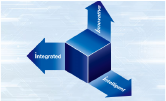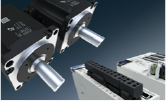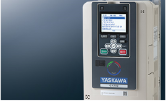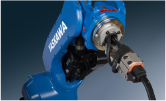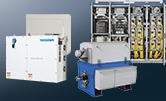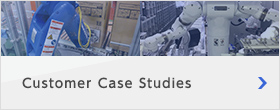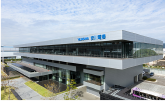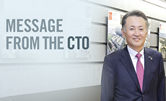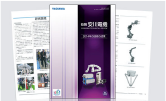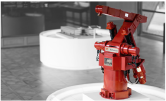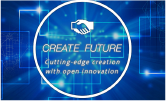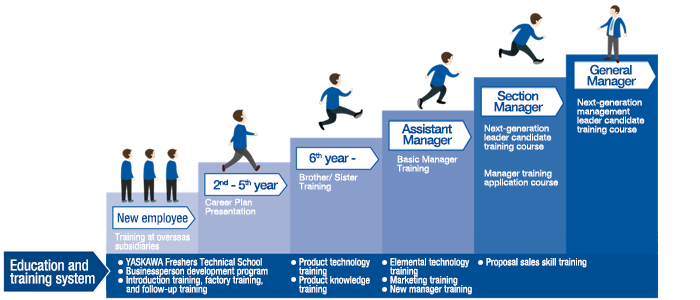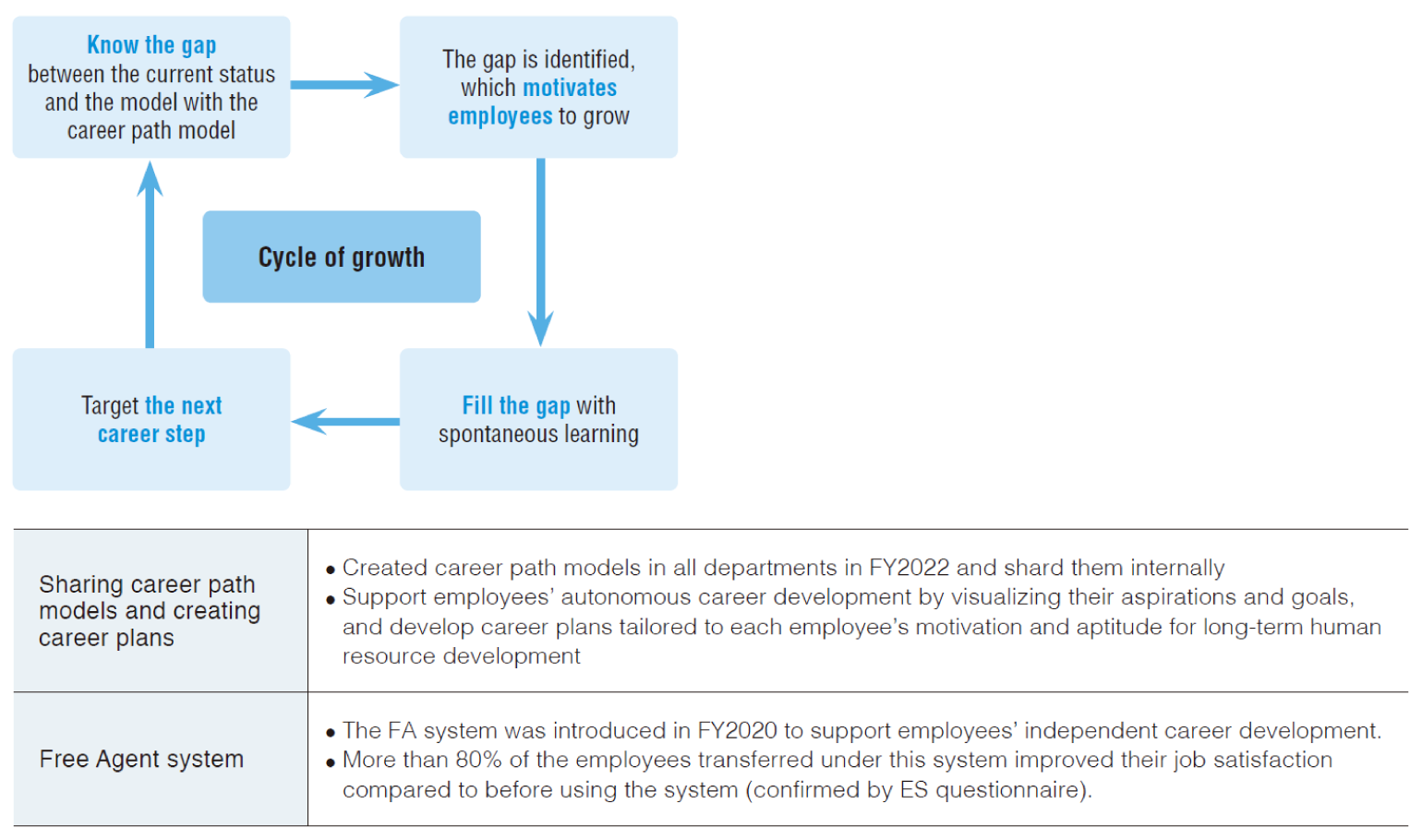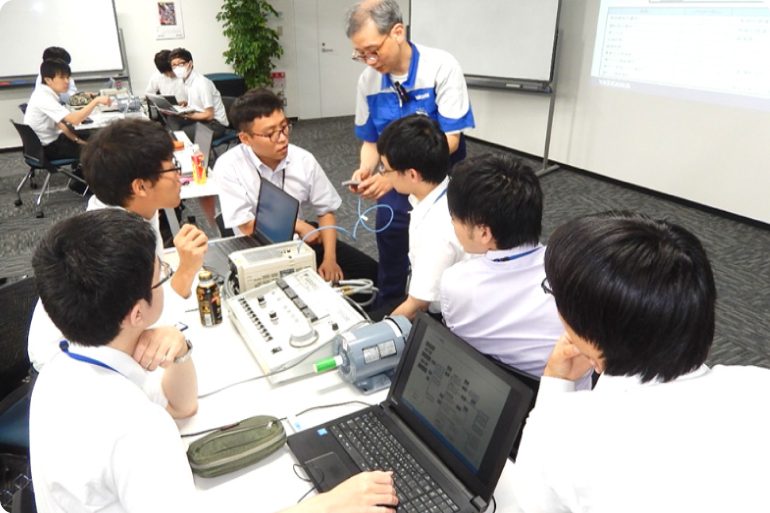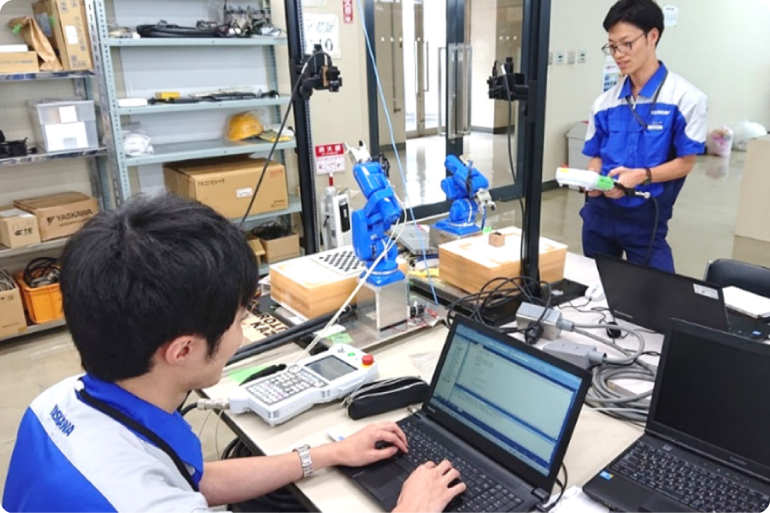Training and optimal placement of human resources
Approach to Hiring and Training Human Resources for Sustainable Value Creation
In today’s business environment, where we face global competition, it is necessary to professionalize each employee to maintain our competitiveness as a company. We believe that the more professionals we have, the more competitive our organization will become and the more flexible we will be in our ability to respond to changes and crises. For this reason, in addition to promoting early career development of young employees, we hire experienced professionals from outside and actively provide them with challenging opportunities, so that they can be selected and promoted to general managers and section managers depending on their contribution and roles.
Aiming to create a better society through superior products and services, Yaskawa considers employee growth to be its greatest asset (value). Based on the belief that “the role of the company is to provide a place for employees to realize themselves” we have introduced an education system that respects each employee’s autonomy, from “provided education” to “self-taught education”. After understanding the gap between “ideal human resources and one’s goal” and “present self” employees will utilize a variety of education and employee training programs to achieve “self-actualization”.
We also provide long-term human resource development through a career plan system that is tailored to the motivation and aptitude of each employee.
Furthermore, in order to improve human resource development, we have introduced a unique system that emphasizes two-way communication, in which the top management assume a role of “Personnel Development Promotion Officer” and directly talk to employees about their dreams and human resource development policies, and holds meetings in which employees directly express their true opinions and requests to the management.
Education System
Based on the basic concept of self-education rather than the given education, OJL (On the Job Learning), which is learning through work, is positioned at the center, and it is supplemented by Off-JL (Off the Job Learning) and self-development, which enhances the value of the employee. As for self-development, the company provides support for what the company considers to be eligible for support, assuming a certain level of self-payment.
Human resource development that respects autonomy
Based on the belief that the role of the company is to provide a place for employees to realize themselves, Yaskawa has introduced an education system that respects individual autonomy, from “education provided” to “self-learning education.” By sharing a career path model and a career requirements definition document, the employees aim to realize themselves while growing sustainably through various education and training systems, grasping the gap between their “goals” and “current status.”
Early development of young talent
We are promoting human resource development in Yaskawa under the slogan of “thinking logically and communicating things appropriately to others” as an ideal target for young talent (within the fifth year of employment).
Through various types of education and training, we provide employees with opportunities to think about their careers and goals immediately after joining the company as well as make them acquire necessary knowledge at an early stage, and encourage them to develop their careers autonomously.
Selection and development of next-generation management (Future management leader training)
Future management leader training is held to develop candidates for next-generation management, who will be responsible for YASKAWA Group’s business development and sustainable growth, as human resources capable of formulating strategies for management innovation.
We make this training a prerequisite for appointment as officers. The training started in 2001 and a total of 127 employees have participated in it. In FY2023, follow-up training was conducted for 13 employees who participated in the training in FY2022.
Improving problem-solving skills through KAIZEN30 activities
Under the slogan “Let’s increase (KAIZEN) operational efficiency by at least 30%,” this is a human resource development activity with the participation of all employees to improve the ability to solve problems and issues that lead to the improvement of the corporate structure by putting QC stories* into practice through improvement activities.
We consider QC stories as a form of work etiquette.
KAIZEN30 activities are implemented throughout the YASKAWA Group with the aim of improving organizational productivity and all employees are required to understand and practice them.
In addition, we hold results presentations and awards for improvement, including group companies in Japan and overseas, to expand the good examples horizontally and to raise motivation through praise and encouragement.
* Methods for solving problems in quality management. We identify and solve problems through the following steps: selecting themes, grasping the current situation, setting goals, planning the schedule, formulating measures, pursuing success scenarios, confirming effects, standardizing and managing, and looking back and future policies.
-
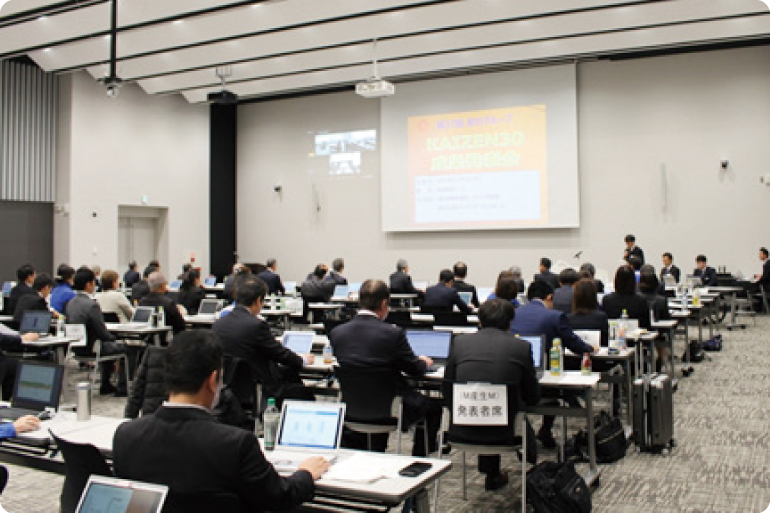
Results presentation
-
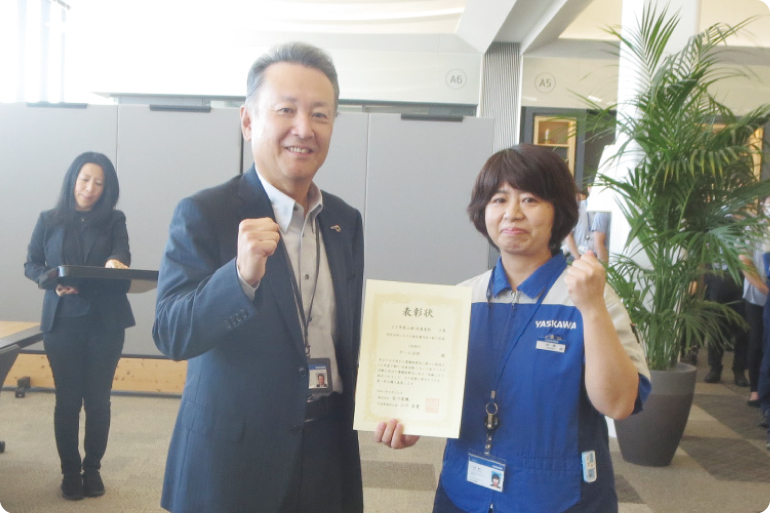
Awards for improvement
Fair evaluation and compensation system based on contribution
In order to improve employees’ sense of contribution and job satisfaction, we have shifted from seniority-based evaluations based on accumulated knowledge and skills to evaluations (conducted twice a year) based on the performance (contribution) achieved by performing duties and have revised treatment based on the role each employee plays and the scale of their duties.
In addition, in FY2021, we expanded the medium- to long-term incentive system to employees in light of the fact that employees are the main contributors to the creation of corporate value. With the aim of raising awareness of participation in management, we provide stock compensation to managers and above and cash compensation to employees, which also encourages them to participate in shareholding associations, in accordance with the level of achievement of mid-term business plan, in order to raise awareness for Yaskawa Group’s corporate value. So far, approximately 80% of all employees in Yaskawa Group in Japan are members of the shareholding association.
-
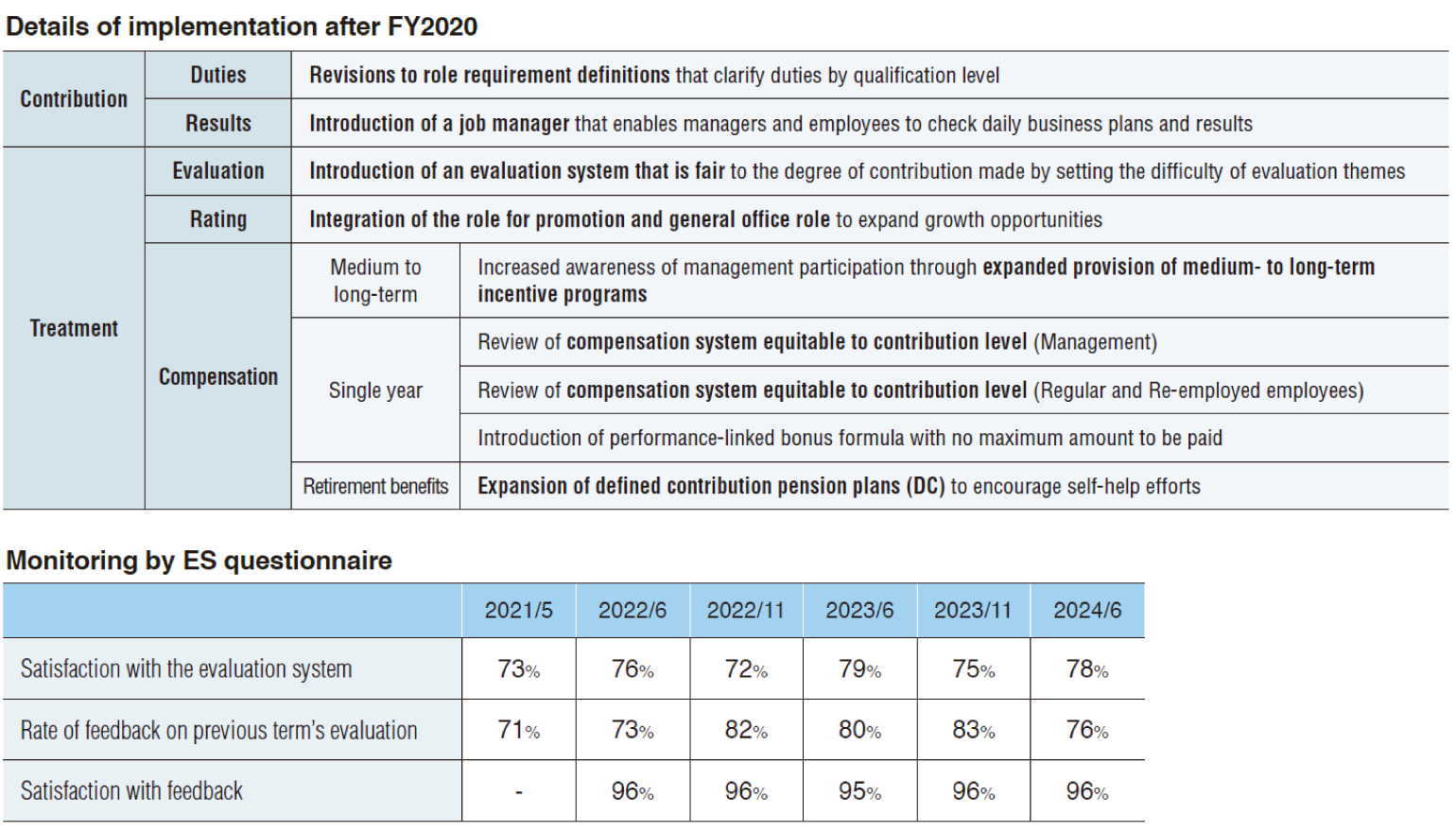
Reward System for Inventions
In addition to providing employees with appropriate intellectual property education, we have established an invention reward system for employee inventions. This system is designed to increase employee motivation for inventions by rewarding a wide range of inventions, including patents with high business contribution, patents with high technical value, and patents with high intellectual property value, as well as “know-how” that do not file patent applications.
 Region
Region



 Principles & vision
Principles & vision
 Procurement
Procurement
 Sustainability for the Yaskawa Group
Sustainability for the Yaskawa Group
 Customer satisfaction
Customer satisfaction
 Supply chain
Supply chain
 Social contribution
Social contribution
 Compliance & risk management
Compliance & risk management



